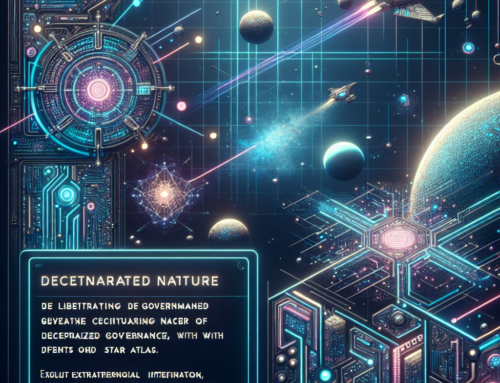Star Atlas: Exploring Political Rights in Gaming

Exploring Political Rights in Gaming: A Look at Star Atlas
Star Atlas, a pioneering multiplayer online game built on the Solana blockchain, is not just about intergalactic exploration and resource management. It also presents a unique opportunity to explore the concept of political rights within the realm of gaming. At Titan Analytics, a Solana validator and analytics platform focused on Star Atlas, we are excited to delve into how this innovative game intertwines governance, player rights, and community engagement.
The Essence of Political Rights
Political rights generally refer to the entitlements that allow individuals to participate in the governance of their communities. In a gaming context, this can translate to how players can affect decision-making and influence the game’s ecosystem. Star Atlas stands out because it allows players to engage not only as gamers but also as stakeholders, providing a deeper layer of involvement.
Governance in Star Atlas
In Star Atlas, governance is heavily influenced by the game’s underlying decentralized economy. Players can acquire assets, participate in elections, and have a say in the development of the Star Atlas universe. This is generally facilitated through decentralized autonomous organizations (DAOs). Through DAOs, players can vote on significant changes, from economic policies to content updates, exemplifying the democratic principles more commonly associated with real-world governance.
Voting Mechanisms
Star Atlas employs a unique voting mechanism that gives players a voice in decision-making processes. Governance tokens, a critical facet of this voting system, empower players to influence the direction of the game. The more involved you are, the more significant your impact on the game’s development. This is a monumental shift in how games traditionally operate, as players can directly contribute to the evolution of their environment.
Economic Rights and Ownership
In addition to political rights, Star Atlas emphasizes economic rights by integrating ownership into its model. Players own their in-game assets—ships, land, and even NFTs—thanks to the blockchain infrastructure. This ownership grants players not only the right to use these assets but also the ability to trade, sell, or leverage them in various ways, similar to real-world economics. This aspect of the game transforms players into economic agents, challenging the traditional boundaries of gaming.
Community Engagement
Star Atlas also fosters a vibrant community where players can collaborate, strategize, and share their experiences. Community forums, social media channels, and in-game interactions allow for rich dialogue and engagement. This communal aspect enables players to advocate for their rights and shares a collective vision for the game’s future.
Conclusion
Star Atlas provides an intriguing lens to explore the concept of political rights in gaming. By enabling players to influence governance, own assets, and engage with each other meaningfully, it blurs the lines between gaming, economics, and community involvement. As a Solana validator and analytics platform, Titan Analytics is dedicated to capturing these aspects through insightful data modules that can enrich your understanding of Star Atlas.
To explore our Star Atlas data modules and gain insights into the game’s evolving landscape, visit Titan Analytics Star Atlas data modules. For any inquiries, feel free to reach out to us at Titan Analytics Contact. Join us in this thrilling journey through the stars!




